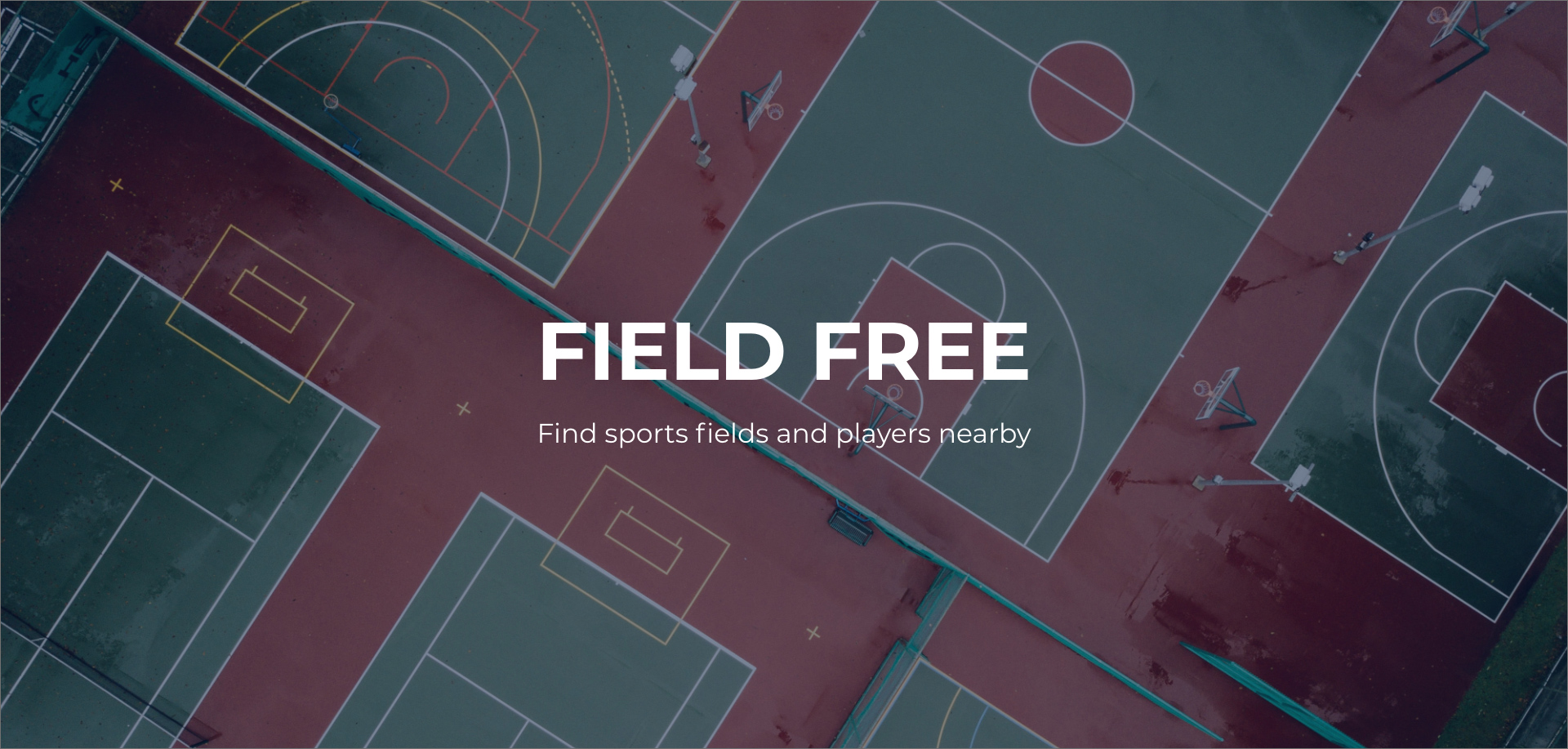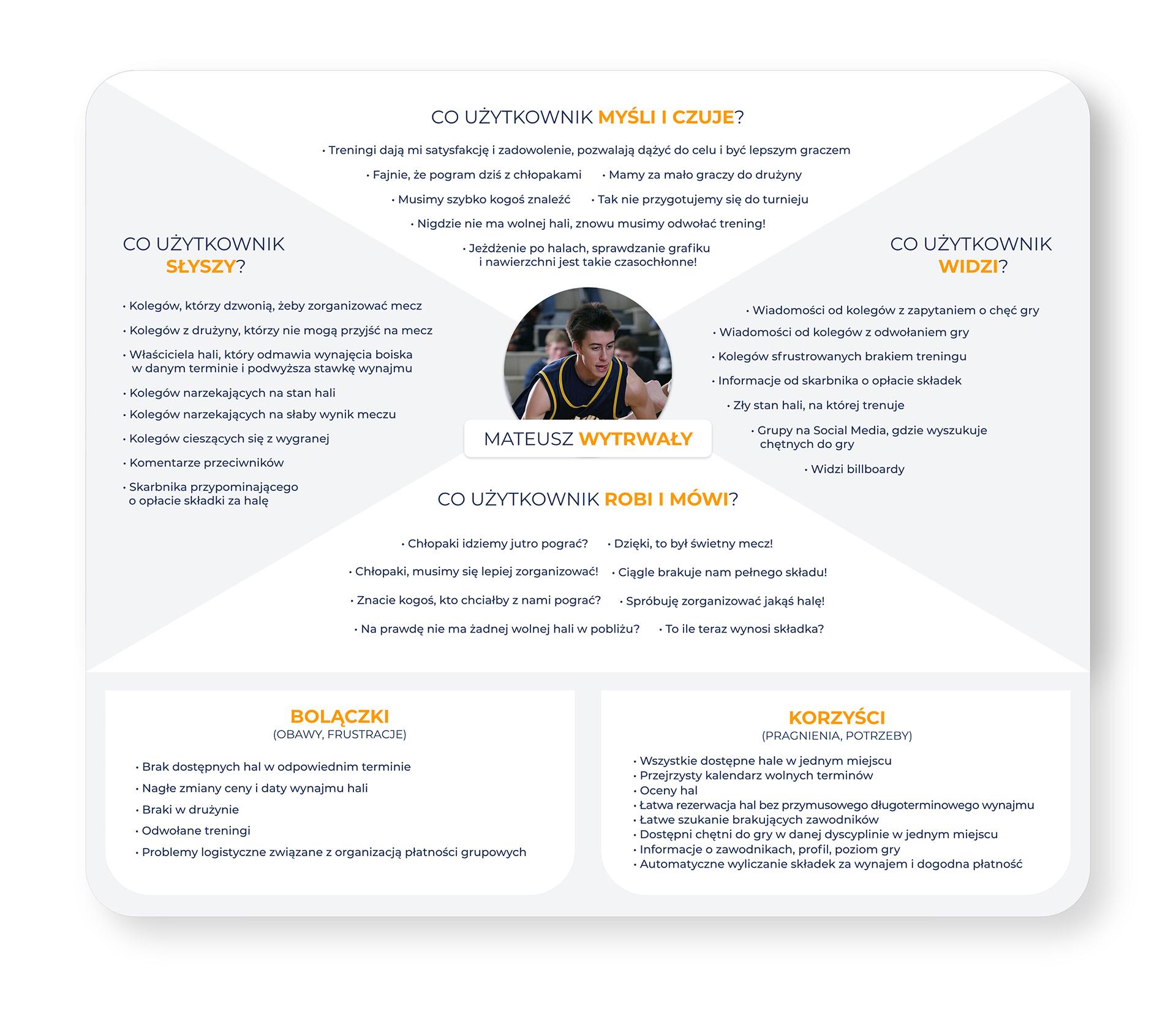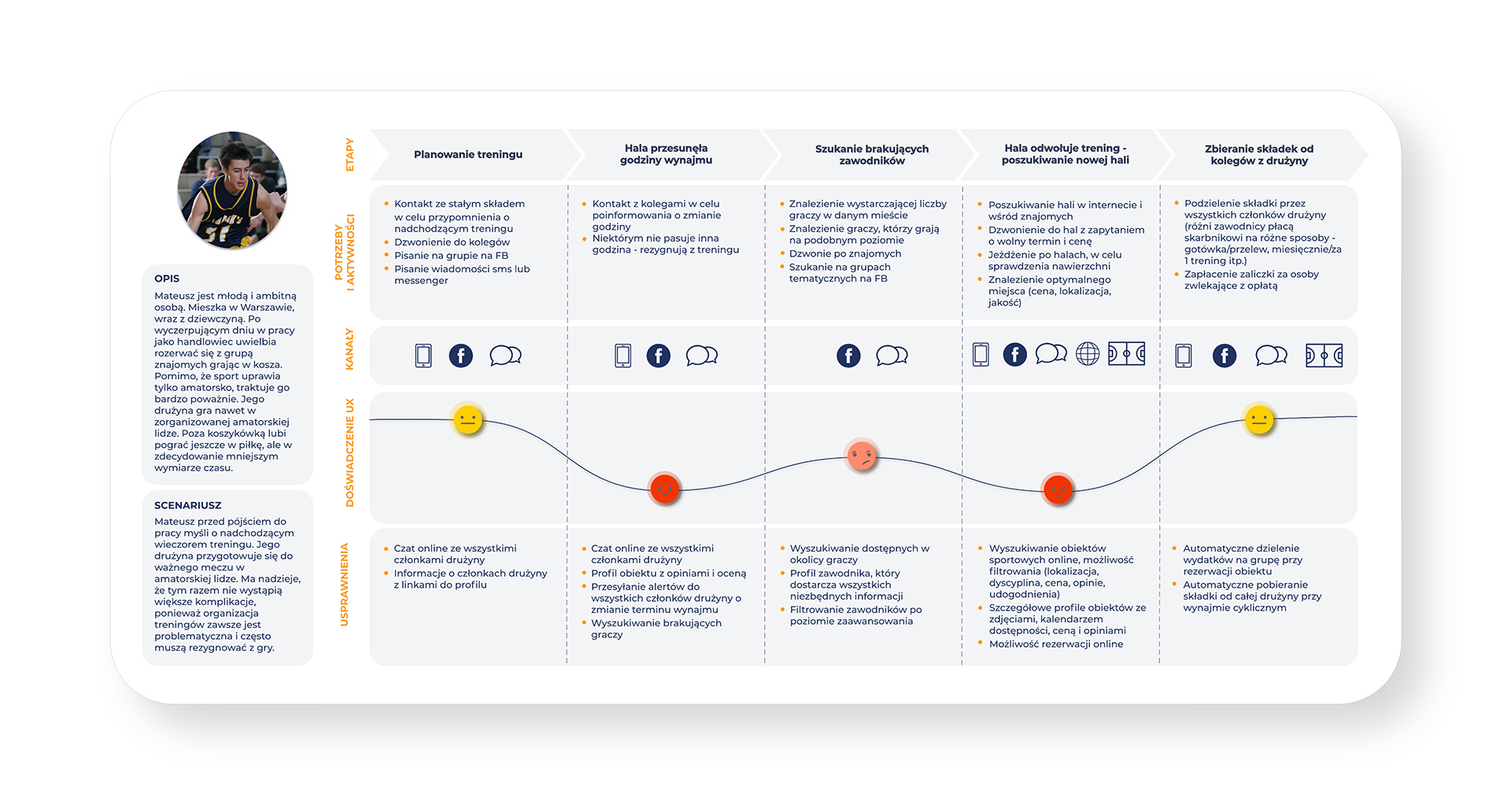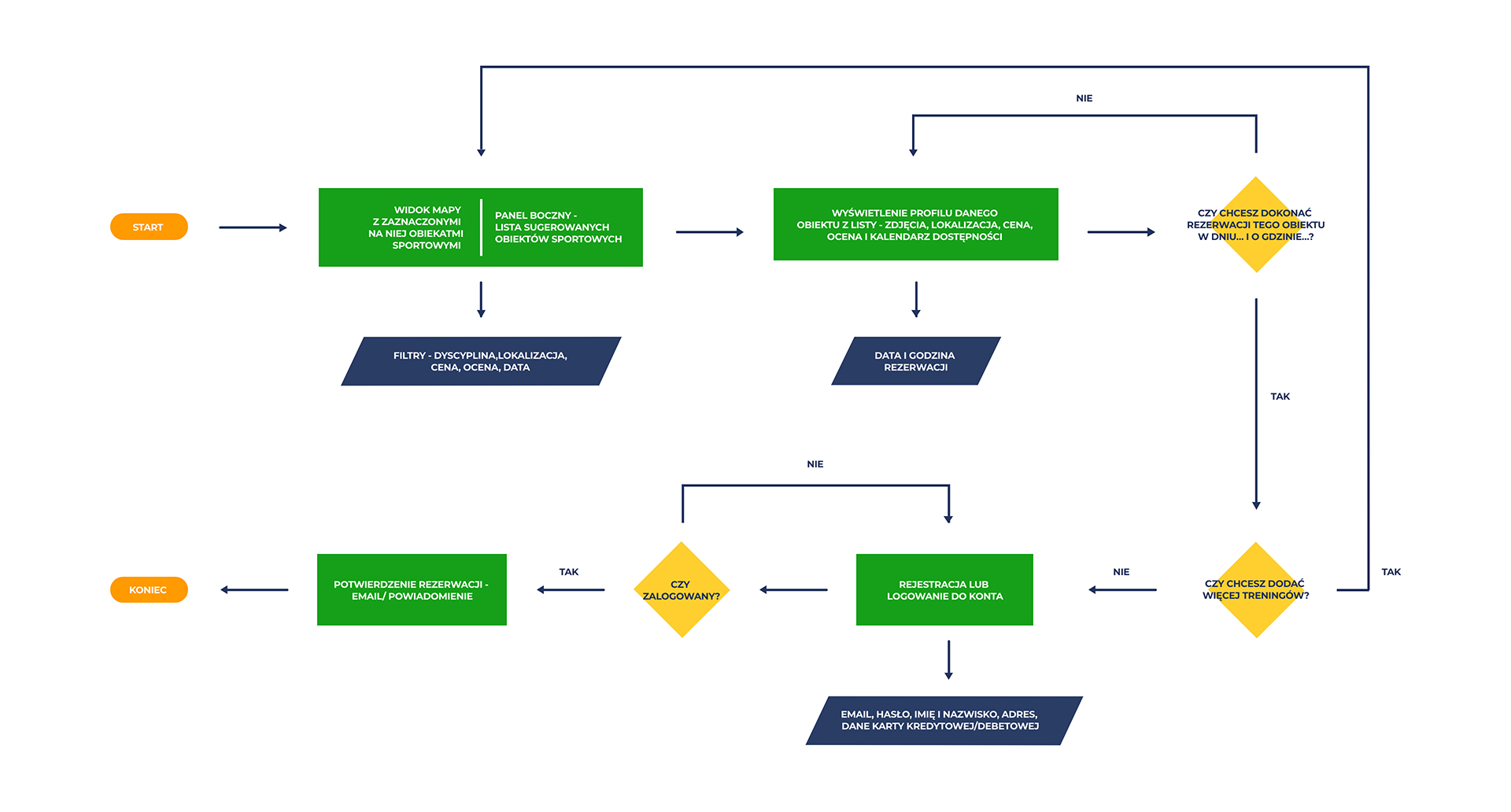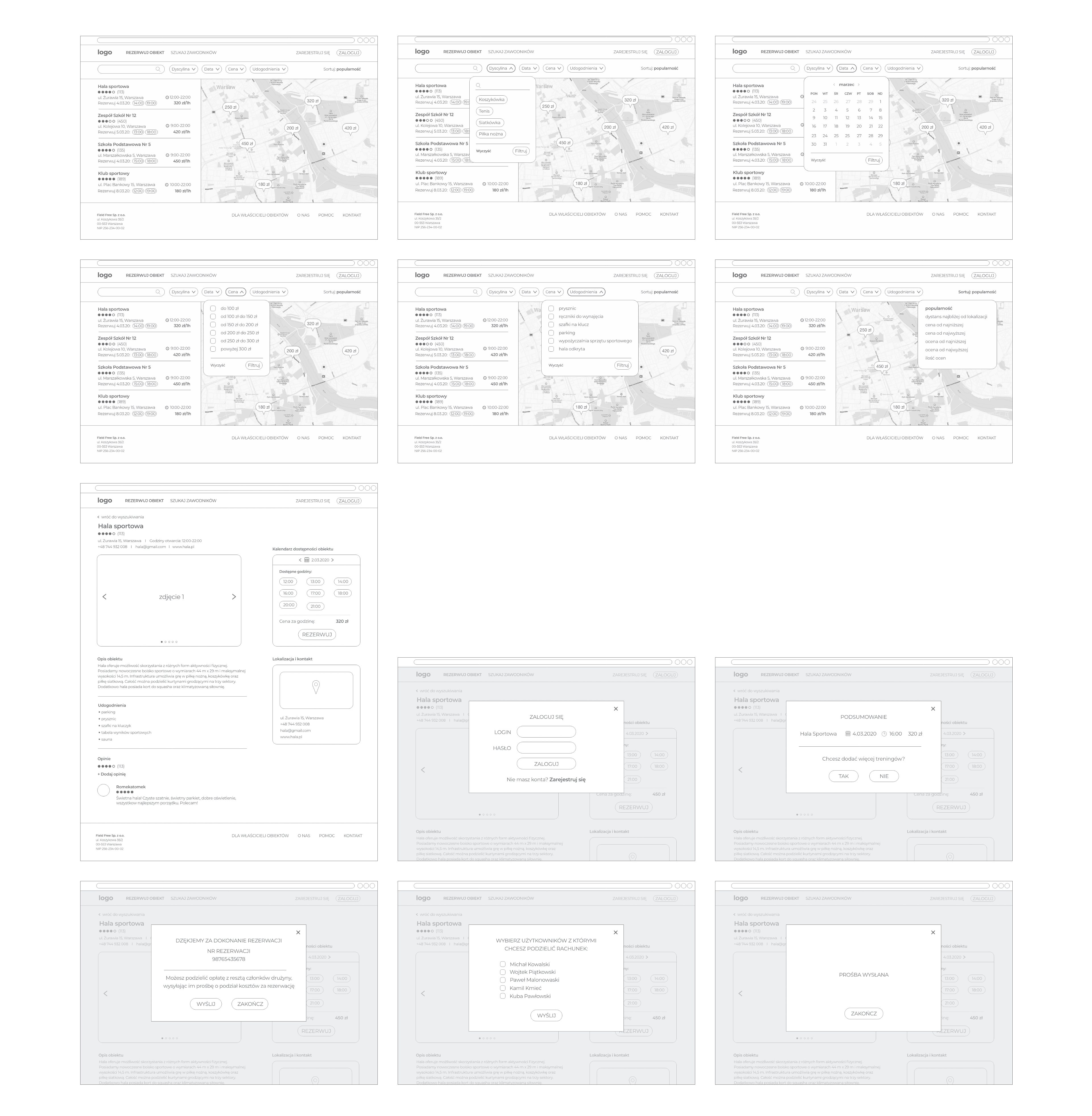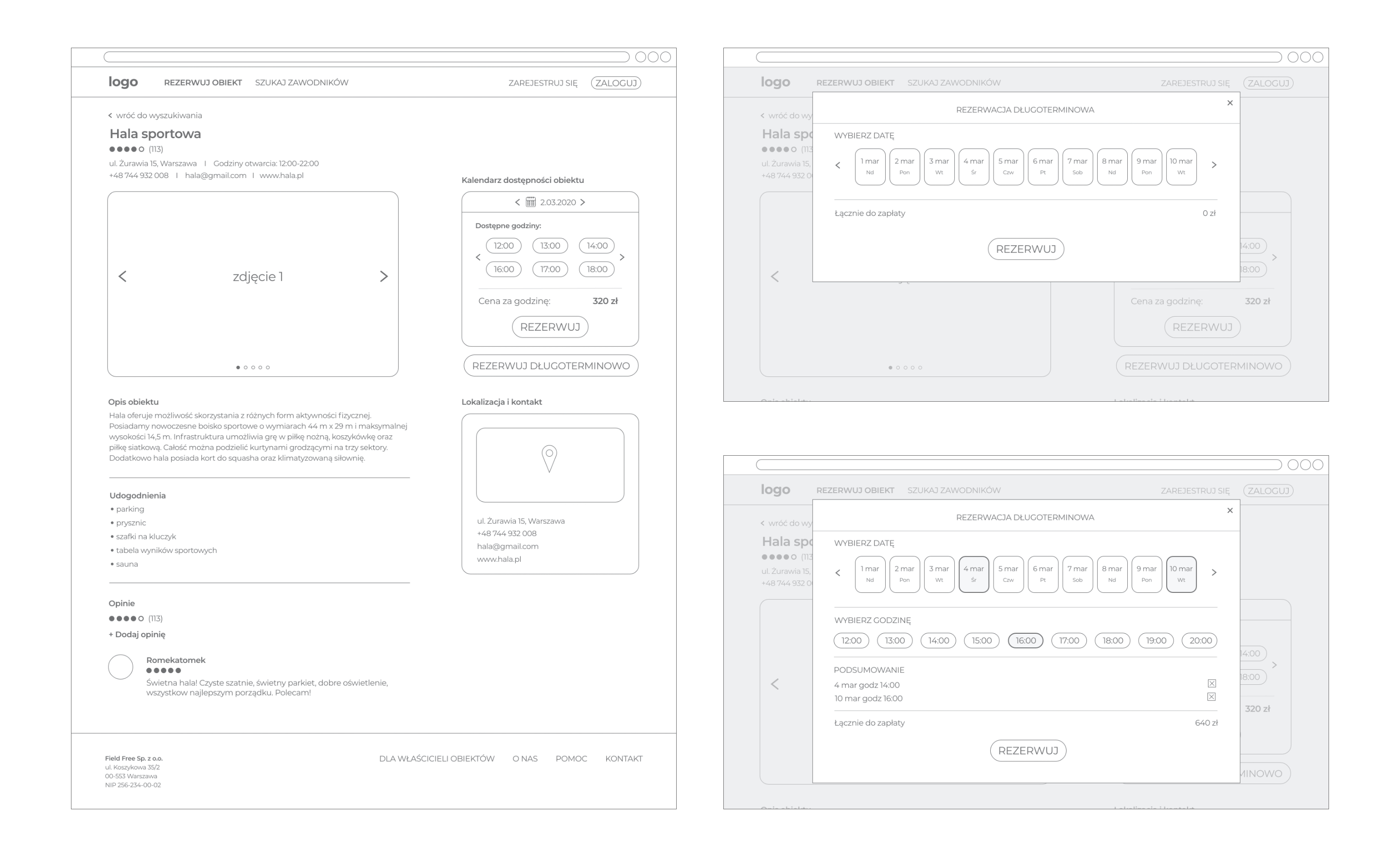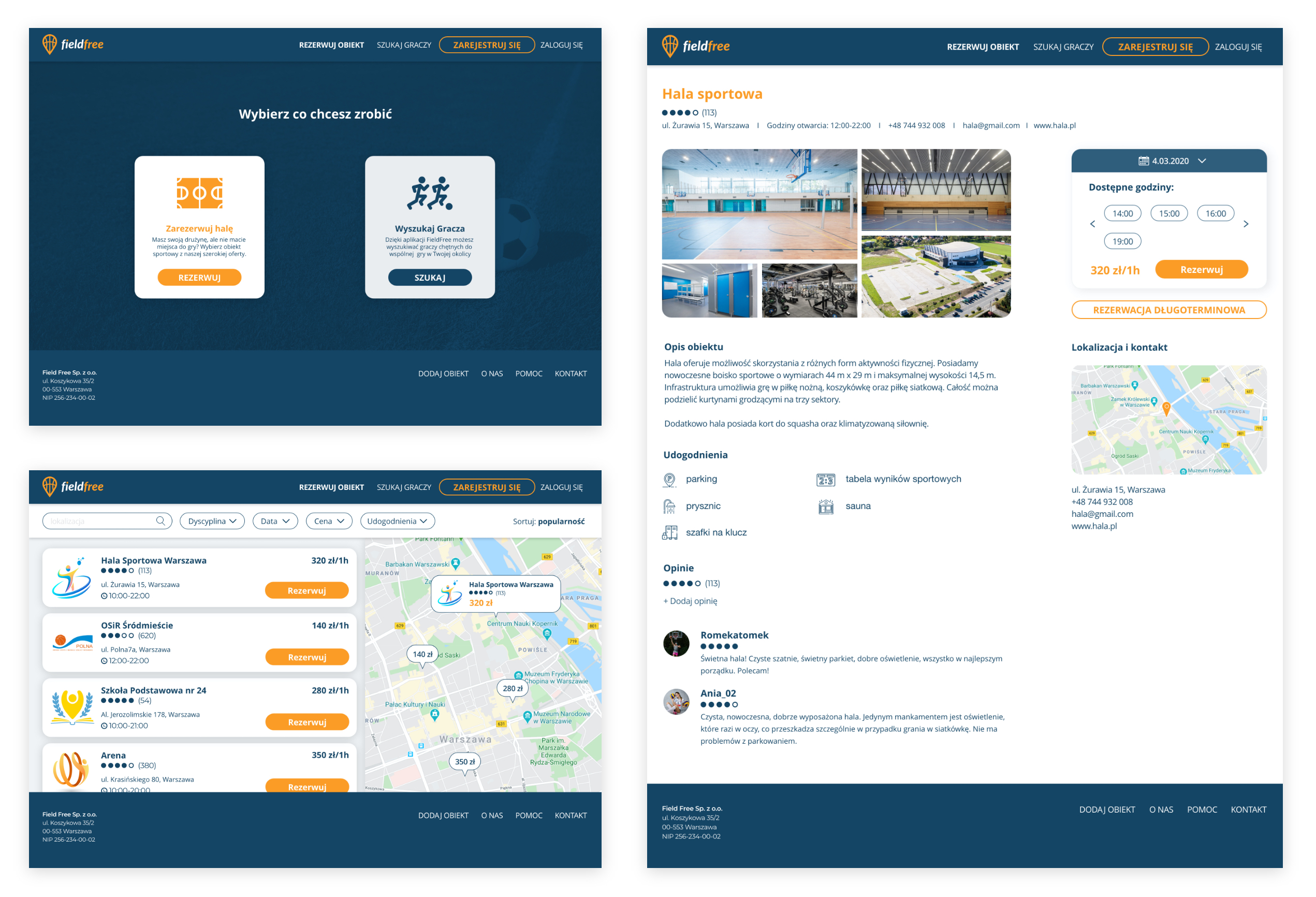About the project
The application enables users to search for and book sports facilities based on discipline, location, and preferred time. Additionally, it provides the possibility to find missing players to complete the team.
* Due to the fact that the project was created for a Polish client, some of the visual materials can be presented in a Polish language, regardless, all the results were also translated into English.
Problem
- Team game enthusiasts, who play sports mainly as a hobby, find it difficult to rent sports halls. As a result, they often have to change the place where they play, and have to adjust to the available hours and dates for renting the halls. What’s more, owners of sports facilities often change their rental terms. In addition, some halls do not have adequate space and are not suitable for many disciplines. In the end usually one of the team members had to travel from facility to facility to see the hall, learn about its schedule and check the surface.
- Another problem for users is to find missing team members and create close-knit social groups with people playing the same discpiline on similar level. So far, users have mainly searched for willing players among their friends or on groups set up on social media channels.
My role
- Project concept creation
- User research and analysis
- Persona evaluation
- Empathy map
- User journey mapping
- Market analysis
- User flow
- Wireflow
- Prototyping
- Usability testing
- Continuos iteratins
In the project I collaborated with three designers. In the initial phase of creating the concept we focused on finding the real problem. We conducted in-depth interviews with our users, based on which we created pesonas, empathy map and user journey map. That allowed us to identify pain points and understand the real needs of users. The market analysis hepled us to get familiar with competitor solutions. In the end, based on the data we received, we proposed an optimal solution for an application to streamline the rental of halls and search for missing players.

Screener
In order to find a suitable target group that would bring us closer to user problems and provide valuable feedback, we prepared a screener – a set of screening questions in the form of a survey – to eliminate participants who did not qualify for further study.
We distributed the screener online on social media channels that are focused on the desired topic. We have received 16 responses.
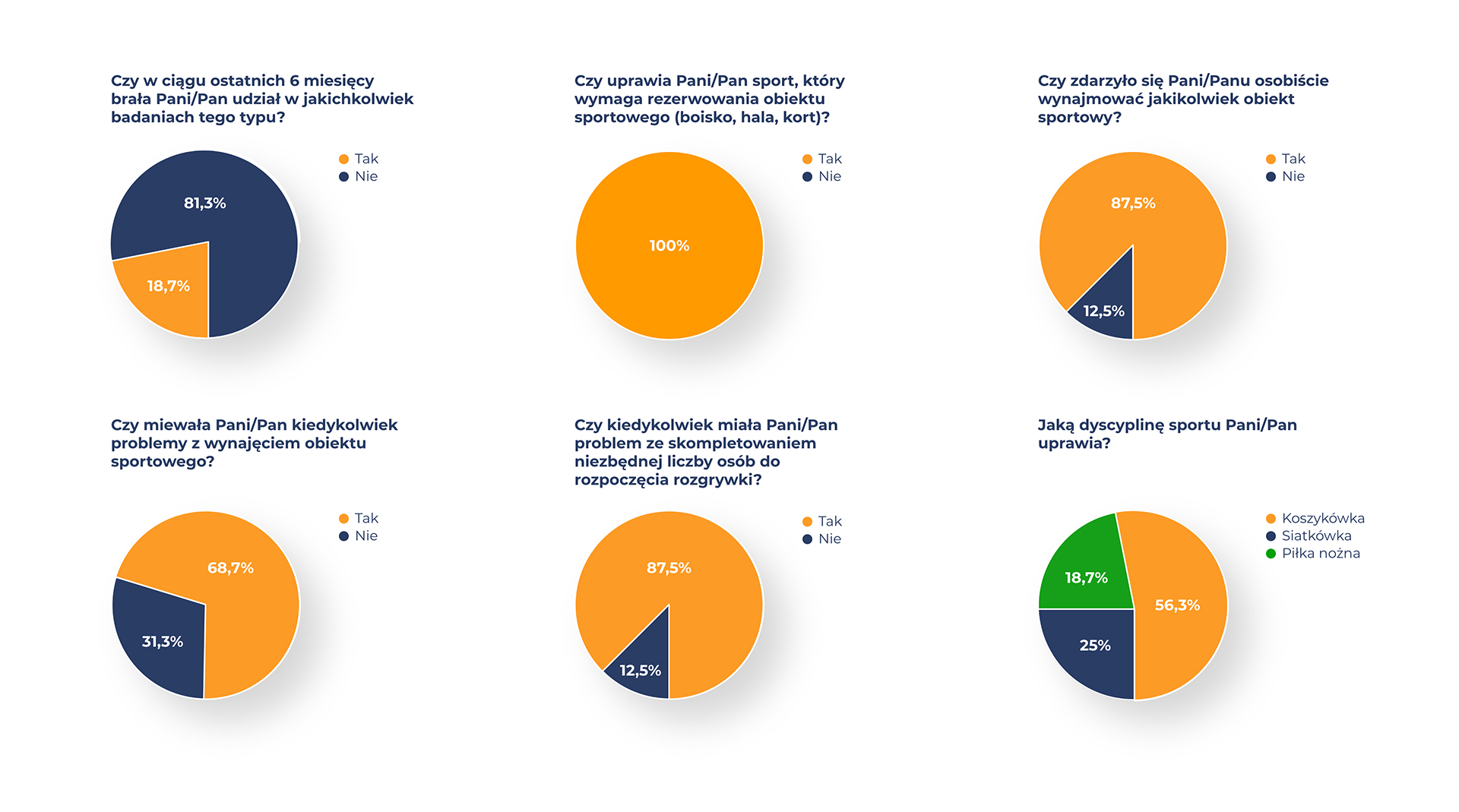
Result
- 100% of respondents play sports that require booking a sports facility
- 87.5% rented a sports facility themselves
- 68.7% had a problem with booking a facility
- 87.5% had a problem completing a full team squad
- 56.3% of respondents were basketball players, 25% volleyball players and 18.7% football players
For the next stage, we invited people who had problems renting sports facilities and finding the necessary players for the game. We also wanted the opinions of users of various sports to get a wider perspective on the problem.
User Interviews
We conducted interviews with 5 persons from all over Poland. Due to the distance of location, we could not meet in person, so we allowed users to choose preferable way of communication (video call via Skype / Messanger or phone call). According to the interview script, we have prepared before, we asked respondents 18 questions, which took about 30 minutes of conversation with each.
Result
- All users specified that in their free time they enjoy playing sports, which is thus their passion.
- They play amateur, but most have a fixed team and belong to a local league.
- The goal of doing sports is “pleasure,” “fun,” “satisfaction,” “to be in good shape,” “to play better and better,” “to win the next game,” but also “to organize meetings in a better way.”
- Team members know eachother from their high school days or from friends’ referrals. They say that now “it’s hard to find new players.”
- When asked where they look for missing players, most answered: “on Facebook groups,” “we call friends,” and “it’s hard to find a player at a similar level to the rest of the team.”
- They play sports in the sports hall or school’s fields. Sometimes at the neighborhood eagle park.
- Rental of the hall is usually handled by one person from the team.
- The average contribution per match (1.5h) costs 10-20 zloty, 200 zloty per month. There is no specific payment system, everyone individually arranges with the one collecting money.
- They meet 1-2 times a week for training.
- When asked if there are problems with renting a hall, most of the respondents answered that – “it is very difficult to find a hall on the Internet, you have to call and mostly no one answers”, “you have to go in person, ask about availability and price, check the surface”, they are looking “through friends”, “by recommendation”.As the biggest problems associated with organizing a match, in addition to the process of finding a sports facility and booking it themselves, they pointed out – “cancellation or postponement of training hours by the hall, resulting in the crushing of team members,” “you have to make appointments several weeks or even several months in advance,” “sometimes the hall is very far from where you live,” “looking for people to play,” “organizing payment – some people pay in advance for several training sessions, others at each meeting; sometimes it’s cash and sometimes a bank transfer.”
- When asked what could improve the organization of their meetings, they replied: “online booking and profiles of halls with reviews, schedule, price and type of surface,” “that you don’t have to call all the halls, ask about price and availability, and then go and check the conditions,” and “a dues payment system.”
Persona
- After analyzing the data obtained in user interviews, we created a persona. It is a 30-year-old man living with his girlfriend in Warsaw. Ambitious and determined. Being phisically active is very important for. Playing basketball with his friends gives him satisfaction and allows to relax, but the preparation process (from assembling a team, to booking a suitable hall and splitting the dues by team members for rent) is often being frustrating and sometimes even lead to the cancellation of training.
- The main channel used by the users are the computer and phone, and the primary source of information is the Internet.
- Persona allowed us to humanize users, get to know their personality, understand the needs and desires, as well as pain points. We referred to those findings throughout the whole product development process.

Empathy Map
Collected data also allowed us to create an empathy map. During its creation, we put ourselves in the role of the user to understand their emotions, problems, concerns, feelings, needs and activities they take. Despite the optimism and satisfaction of training, often when it comes to arranging meetings, the user is accompanied by tension and nervousness. Defining negative and positive emotions allowed us to identify the points of contact between the user and the product. We understood the problem and recognized the needs, drawing up a list of benefits that our product could transfer to the user.


